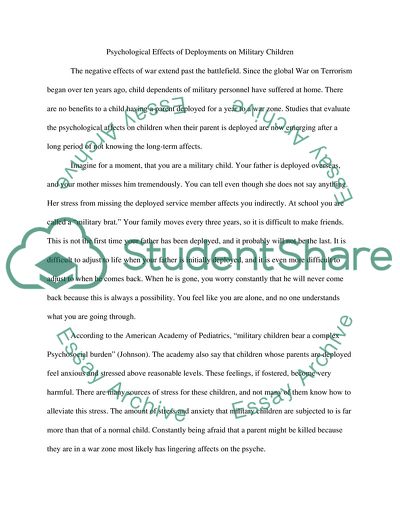Cite this document
(Psychology of Military Children Coursework Example | Topics and Well Written Essays - 2500 words, n.d.)
Psychology of Military Children Coursework Example | Topics and Well Written Essays - 2500 words. https://studentshare.org/psychology/1760869-military-parents-and-the-psychological-affects-on-the-children
Psychology of Military Children Coursework Example | Topics and Well Written Essays - 2500 words. https://studentshare.org/psychology/1760869-military-parents-and-the-psychological-affects-on-the-children
(Psychology of Military Children Coursework Example | Topics and Well Written Essays - 2500 Words)
Psychology of Military Children Coursework Example | Topics and Well Written Essays - 2500 Words. https://studentshare.org/psychology/1760869-military-parents-and-the-psychological-affects-on-the-children.
Psychology of Military Children Coursework Example | Topics and Well Written Essays - 2500 Words. https://studentshare.org/psychology/1760869-military-parents-and-the-psychological-affects-on-the-children.
“Psychology of Military Children Coursework Example | Topics and Well Written Essays - 2500 Words”. https://studentshare.org/psychology/1760869-military-parents-and-the-psychological-affects-on-the-children.


